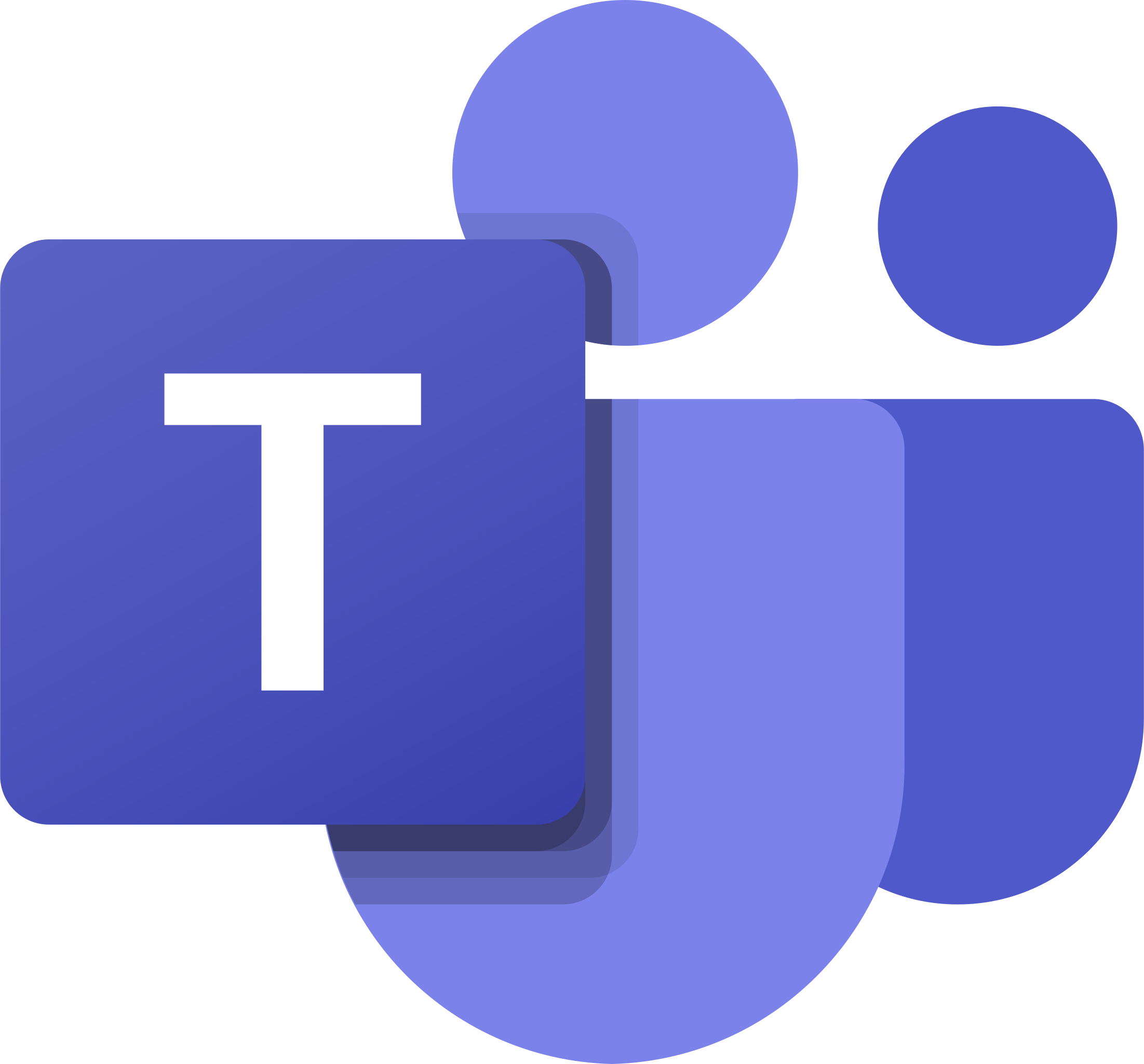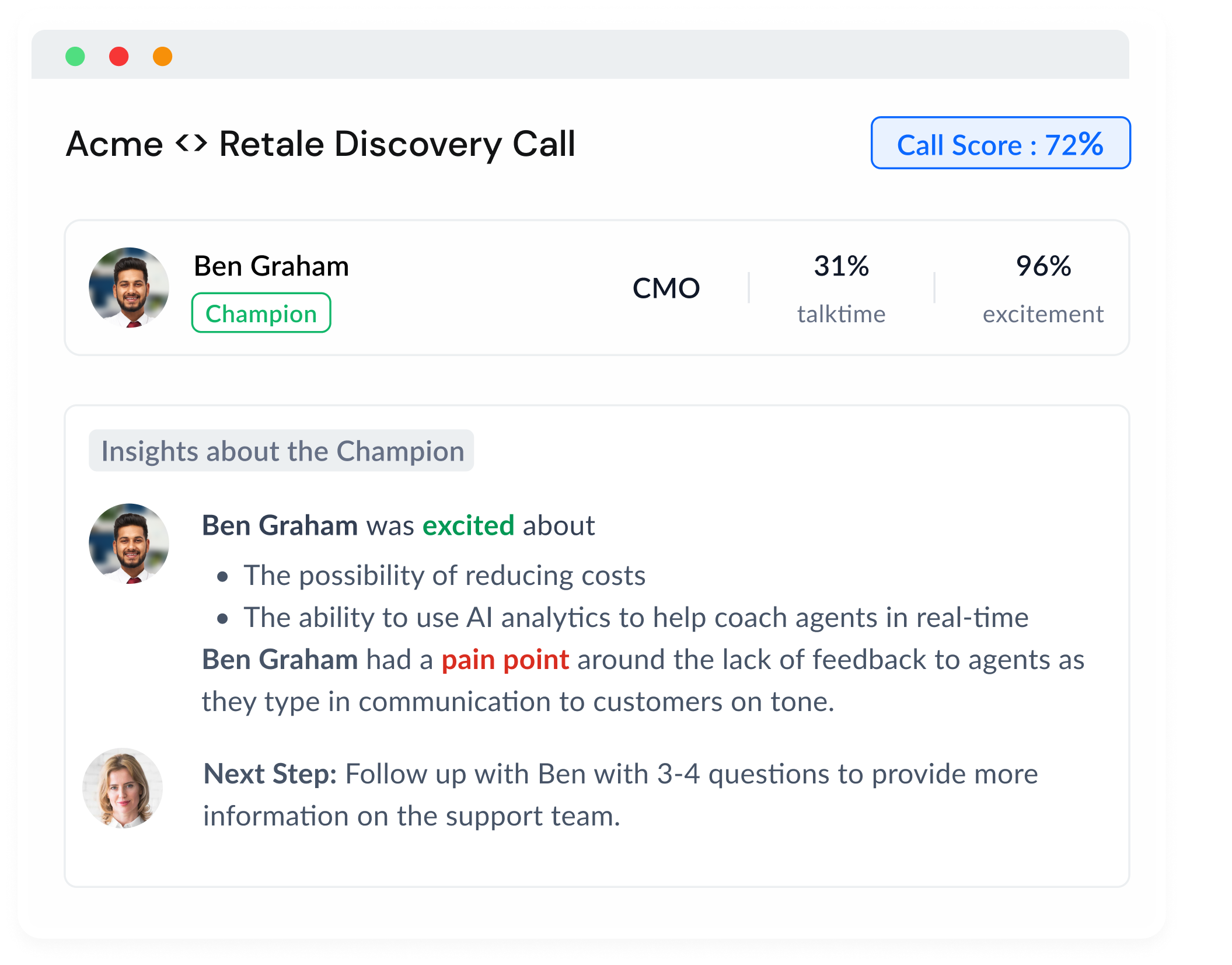Ever had a brilliant idea during a virtual meeting and then, poof, it vanished into thin air because nobody was taking notes? Remember the moment when you couldn't recall who was assigned which task? Cue dramatic sighs and a frantic scramble to make sense of the notes. Well, let's put an end to that. Welcome to the world of Microsoft Teams Recorder, the superhero tool that's here to save your day, or at least your meetings.
Prepare for a deep dive into the universe of Microsoft Teams Recorder. We will unearth its capabilities, shed light on best practices, and even provide some troubleshooting tips. We'll also explore the not-so-distant future of sales calls, where AI tools like Sybill take center stage.
Microsoft Teams Recorder: The Secret Sales Weapon
Microsoft Teams Recorder is a game-changer for anyone in the business of virtual meetings. It records video calls, webinars, and even personal coaching sessions. But it's more than just a replay button.
It's an opportunity to reflect on crucial conversations, identify areas for enhancement, and ensure no detail slips away unnoticed. Besides, it's an invaluable tool for legal compliance, training, and conflict resolution.
The Upsides and Downsides of Microsoft Teams Recorder
Why Microsoft Teams Recorder is a Sales Pro's Best Friend
Microsoft Teams Recorder is a potent weapon in your sales arsenal. By keeping a record of every interaction, you get the chance to revisit critical moments, analyze your prospect's responses, and evaluate your sales pitch. It's like having a time machine for your meetings! Moreover, these Teams meeting recordings are fantastic training tools, offering new team members genuine examples of effective sales tactics.
Overcoming the Hurdles with Microsoft Teams Recorder
Like any tool, Microsoft Teams Recorder comes with its set of challenges. Managing storage can become a chore when dealing with a plethora of recordings. Plus, finding specific segments in a long recording can feel like a detective mission. But don't despair, we have a kit of integrations and collaboration tools that can solve these issues.
Optimizing Microsoft Teams Recorder for Success
Tapping into the full potential of Teams Recorder means more than just recording the meeting. It requires some finesse, a good understanding of the platform, and a few tried-and-tested best practices under your belt. So let's delve deeper into making Teams Recorder work for you.
The Dos and Don'ts
Just like any powerful tool, Teams Recorder comes with a set of methods that can help optimize its use. Let's explore a few:
- Always ask for consent: Whether it's a legal requirement or not, it's always respectful to inform participants that the meeting is being recorded. It encourages transparency and builds trust.
- Utilize the 'Pause' feature: Teams Recorder has a handy 'Pause' feature that you can use to stop recording during irrelevant segments. This not only saves space but also makes your recording more concise.
- Ensure ample storage: If you're recording a long meeting, make sure your device (or your cloud/web storage) has enough space. The last thing you want is for your recording to end abruptly due to a lack of storage.
Microsoft Teams Recordings: A Treasure Trove for Training and Feedback
Unleashing the Potential of Recordings for Training and Self-Improvement
Microsoft Teams harnesses recordings as a rich information archive for numerous purposes. From understanding your prospects better to refining your communication skills, these recordings offer myriad opportunities for growth.
New team members can benefit immensely from these recordings. They can observe real-life sales scenarios and get a sense of how experienced team members navigate various situations. This practical exposure can significantly supplement their theoretical training.
For sales veterans, these recordings offer an excellent opportunity for self-reflection. By reviewing their previous interactions, they can identify areas where they can improve, whether it's the way they present their product or how they handle objections.
Leveraging Recordings for Team Feedback and Performance Reviews
Recordings can also be a powerful tool for providing feedback and conducting performance reviews. By reviewing recordings of sales calls, managers can give specific, concrete feedback to their team members. This can lead to more productive discussions and targeted improvements.
You can also use these recordings to spotlight and celebrate your team's successes. Did someone handle a tricky question particularly well? Share it with the team and celebrate their quick thinking. This can boost morale and encourage others to learn from their peers' success.
Supercharging Teams Recorder with Integrations
The Teams Recorder is strong on its own, but when you pair it with other tools, it becomes even more powerful. Think of it as your favorite superhero joining forces with others to form an unstoppable league. Let's explore the vast universe of integrations that can take Teams Recorder from great to extraordinary.
Harnessing the Power of CRM Integrations
Customer Relationship Management (CRM) tools are the trusted sidekicks of any salesperson. When integrated with Teams Recorder, they help streamline your workflow and create a more seamless communication process.
Imagine having your Teams recordings linked directly to specific client profiles in your CRM; sounds like a dream, right? That's exactly what CRM integrations offer. Salesforce, HubSpot, and Zoho are just a few examples of CRMs that can team up with Teams Recorder for this purpose.
Making the Most of Cloud Storage Solutions
If you've ever received the dreaded "storage full" notification, you know how much of a lifesaver cloud storage solutions can be. Google Drive, Dropbox, and OneDrive offer ample storage space making it easy to store and share your Teams recordings. Cloud storage integrations automatically upload your recordings to the cloud. This doesn't take up local storage, and you can access your recordings from anywhere at any time.
Leveraging Transcription Services
Ever tried to find a specific piece of information in hours of recorded calls? It's like searching for a single star in the night sky. This is where transcription services swoop in to save the day. Tools like Otter.ai or Rev can transcribe your Teams recordings, converting audio into text, making it much easier to search for keywords and find the specific details you're looking for.
Future of Sales Calls: AI and Beyond
In this era of technology, advancements in AI are clearly interwoven with the future of sales calls. But what does this mean for you, and how can it change the way you operate in your professional landscape?
AI Enhancing Recordings
The power of AI in enhancing meeting recordings is only beginning to be harnessed. Through advanced speech recognition, AI can turn hours of conversation into searchable, manageable text. But that's just the tip of the iceberg.
AI can also analyze this text to identify key topics discussed, gauge sentiment, and even measure the effectiveness of different parts of your conversation. This gives you not just a record of what was said, but also a deep analysis of the reception, the most engaging parts, and areas that might need improvement.
AI-Powered Behavioral Analysis
The capabilities of AI go far beyond just understanding what is being said. Some advanced AI tools can analyze both verbal and non-verbal cues, providing insights into the behaviors and preferences of your call participants. Imagine understanding your buyer's reactions to your pitch in real time and being able to adjust your approach on the spot. This is not a futuristic dream, it's a reality made possible by AI.
Personalized Sales Experiences with AI
AI can also help deliver more personalized sales experiences. By analyzing past interactions, AI can help predict a client's needs and preferences, allowing you to tailor your approach and provide a more personalized experience. This level of personalization can significantly enhance client relationships and increase the effectiveness of your sales calls.
AI and Continuous Learning
Perhaps one of the most exciting aspects of AI in sales calls is its potential for continuous learning and improvement. With each recorded call, AI learns more about effective sales techniques, common client questions and objections, and the characteristics of successful interactions. Sales teams can use this wealth of knowledge for training, refining sales strategies, and continually improving the sales process.
AI Integration: The Power of Sybill
Sybill (that’s us!) is an AI tool designed to join your sales calls and analyze each moment. By studying your Microsoft Teams recordings, Sybill can identify how your buyers react to each message and piece of content, giving you a deeper understanding of their behaviors and preferences.
With Sybill, you're not just recording your calls - you're turning them into a tool for continuous learning and improvement. It can help you refine your sales strategy, improve your communication skills, and ultimately, close deals more effectively.
In the not-so-distant future, we can expect AI tools like Sybill to play a more significant role in sales calls. By embracing these advancements and preparing for potential challenges, sales teams can stay ahead of the curve and navigate the digital sales landscape with confidence.
The world of virtual sales is constantly evolving, and tools like Microsoft Teams Recorder are at the forefront of this revolution. By understanding its features, overcoming its challenges, and learning to leverage its capabilities, sales professionals can transform their sales strategy and achieve greater success.
So, the next time you're in a Microsoft Teams meeting, remember the power of the 'Record' button. It might just be your key to sales success!















.png)





